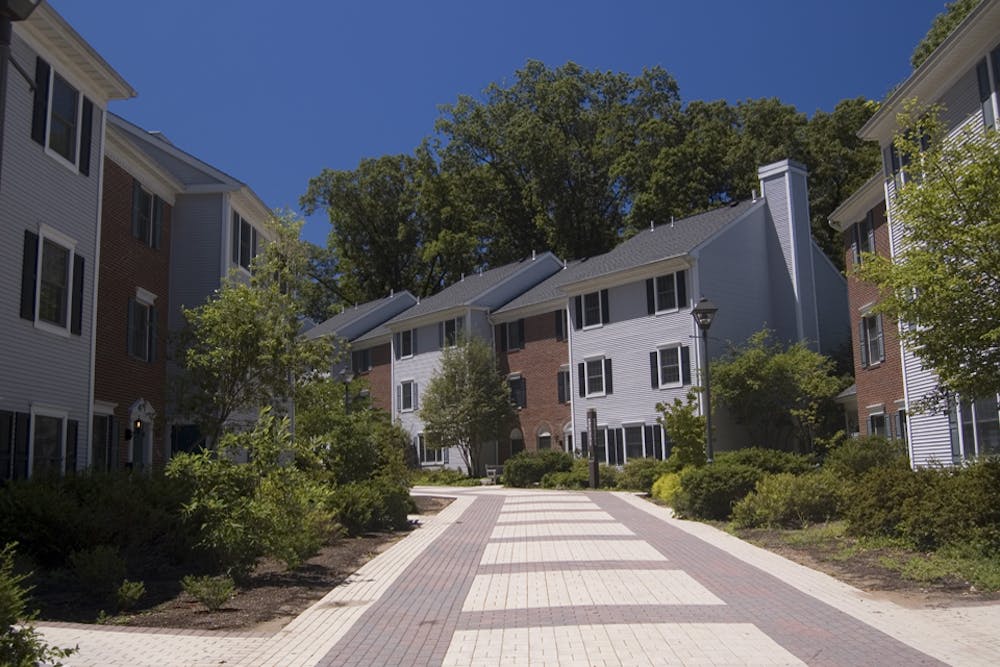By Richard Miller
Opinions Editor
For many students, college brings a lot of firsts — living on their own, buying and cooking for themselves or the first time they go to party. For the latter, they may be exposed to alcohol or drugs, which can lead to substance use disorder and leave students wondering where to turn for help.

The College’s Collegiate Recovery Community works to provide a safe space for those who have been affected by substance use disorder, as well as motivate and support those in recovery and reduce the stigma on campus.
According to the Substance Abuse and Mental Health Service Associate, a 2014 study showed that of 12.4 million college students, over one third engaged in what would be excessive binge drinking.
Additionally, substance use disorder continues to be one of the most serious public health issues for young people in the U.S., the results of which can lead to negative health, social and economic consequences for adolescents and their families.
Founded in 2016, the CRC started with just a few allies of and students in recovery, who wanted to convey the message that people are not alone.
“As cliché as it may be, (the message ‘you are not alone’) is what we strive to stress,” said John Brezina, a senior clinical psychology and counseling major, the CRC’s vice president of advancement and an ally of recovery. “You will always have people here who have your back, and you will accomplish anything and make all kinds of personal progress with us.”
Throughout the academic year, the CRC hosts many different substance-free events on campus, including themed parties, Narcan training sessions and its newly founded All Recovery meetings, which provide students with an open space to talk about their struggles.
“Recovery comes in all shapes and sizes, and for many different reasons,” said Samantha Allen, a senior marketing major, president of the CRC and an ally of recovery. “Each person is recovering from something, and that isn’t always due to a substance use disorder. Recovery, to me, means supporting each other, building healthy boundaries and asking for help when it is needed. Each member of the CRC is vital to a successful recovery community.”
Over the past few years, the CRC has seen a growth in its members, many of whom are students in recovery or are allies of recovery.
“(In just this past year,) the growth has been exponential, astronomical,” Brezina said. “Funny enough, I actually teared up showing up to the last CRC meeting, because I was in absolute disbelief of how many people I saw in the room.”
With September being National Recovery Month, Brezina hopes that more students will become involved in being allies in order to create a sense of community that will help promote a healthier lifestyle for those recovering.
“We have been making great strides recently in pushing the envelope of our diversification, and the most important result of that is our inclusion of allies,” Brezina said. “An ally is someone who, though not personally and directly impacted, has some connection to the issues at hand, or even just cares about supporting those going through it.”
Working closely with the College’s Collegiate Recovery Program, the CRC also provides recovery-specific housing known as Lion’s House, which is led by the CRC’s adviser, Christopher Freeman, who is a counselor at the College.
“(The Lion’s House is) a place where students in recovery can live together and fully participate in the college experience while growing in their recovery,” according to the CRC’s website. The College is one of the 26 institutions in the country to offer substance-free housing.
With countless resources and supporters, Allen hopes the CRC’s impact will only grow throughout the years.
“Almost every person is impacted by substance use disorder whether that is themselves, a family member or a friend,” Allen said. “The more people that talk about recovery, the more we are able to reduce stigma on about recovery on our campus.”
The CRC’s next goal is to become an official student organization at the College, a mission that Brezina believes is more than possible with the help of people sharing their stories and supporting those in recovery.
“I hope that all of the passionate people here at the CRC continue to spread our name around the campus community, because when it comes to (substance use disorder) and battling stigma, awareness and knowledge are everything,” Brezina said. “All it takes is to touch one person, to help support one person’s life, and the CRC is a success.”







